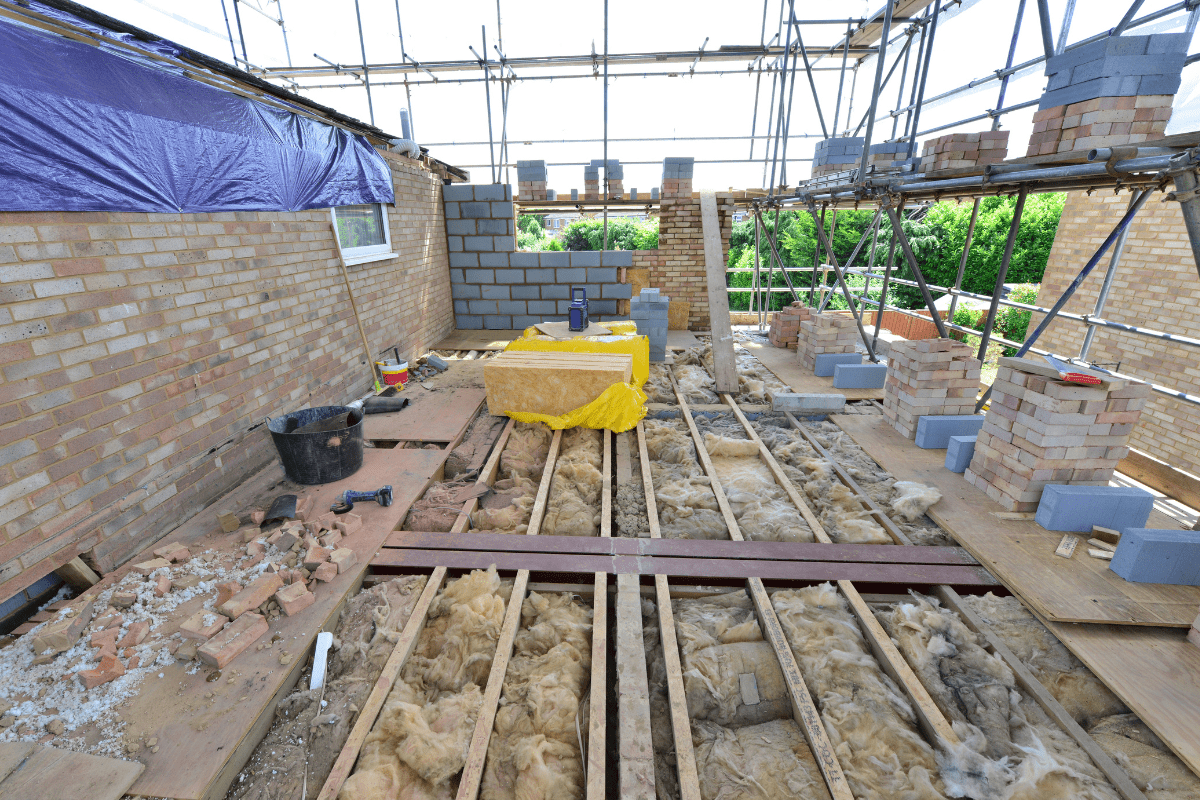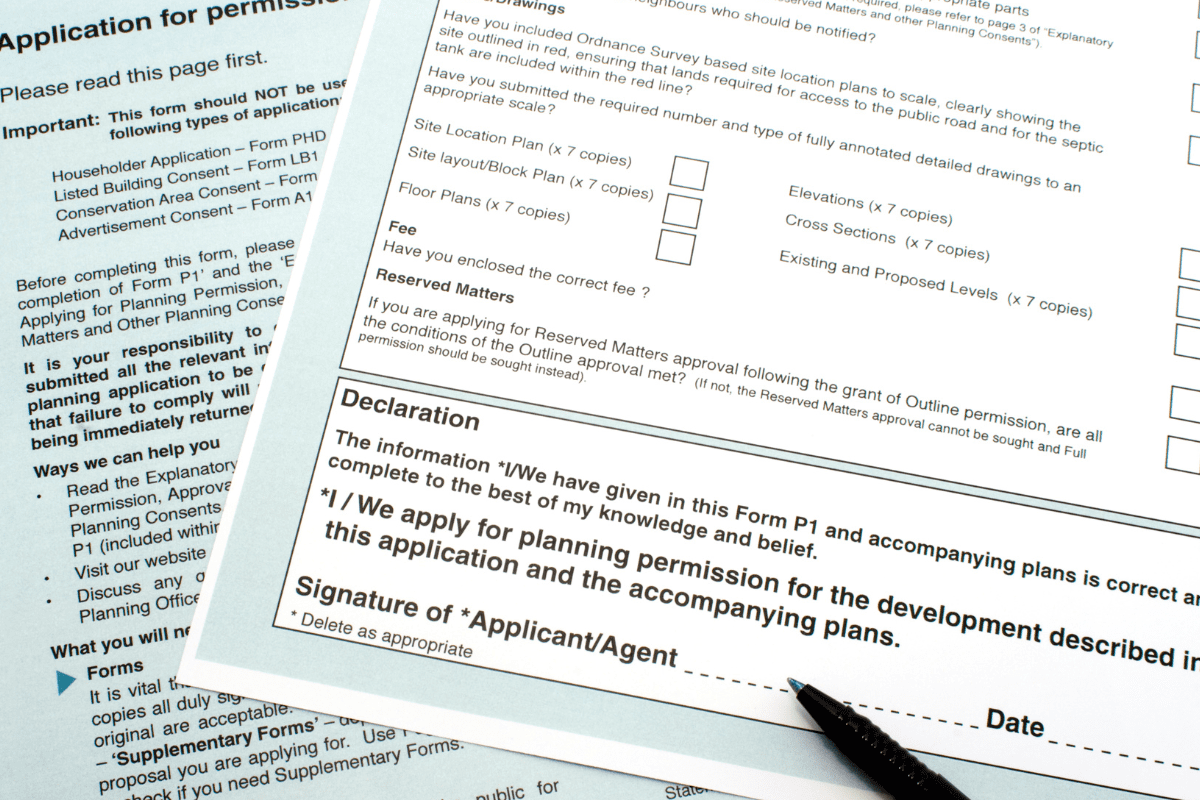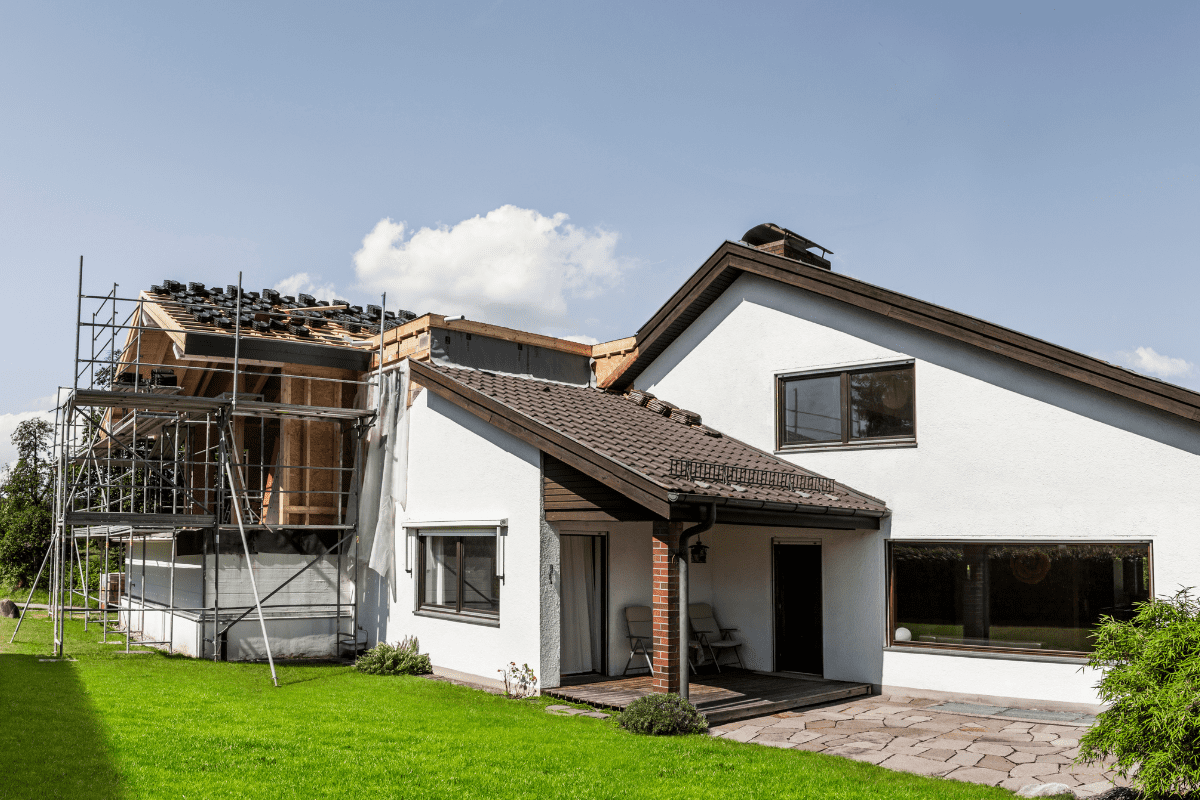- Compare agents
- Online valuation
- Explore my area
- Home toolkit
- News & guides


- Estate agents by area
- Sold house prices by area
- Estate Agent ValuationRequest an in-person valuation with an agent to discover your property's true market value.
- Online Valuation ToolGet a free instant estimate of your home's value.
- EPC CheckerFind out if your home has a valid Energy Performance Certificate.
- Listing MonitorAlready on the market? See how your online property advert is performing.
- Selling guides
- Estate agent guides
- Mortgage advice
- Conveyancing guides
- Property news See All News & Guides

Agent shortlist

HouseWorth
Add value to your home25 August 2023
How long does planning permission last?
Kimberley Taylor
Writer & Researcher

Table of contents
- 1. What is planning permission?
- 2. How long does planning permission last?
- 3. Types of planning permission
- 4. Why does planning permission expire?
- 5. What constitutes starting work after getting planning permission?
- 6. Renewing or extending your planning permission
- 7. What happens if construction is delayed?
- 8. How to speed up the planning process
- 9. Summary: You can't extend, but you can reapply!
If you've obtained planning permission but need to put a project on hold, you might have concerns about how long planning permission lasts. What if you need to space out your project to save money? Or maybe bad weather has disrupted your plans? Or sometimes, life just gets in the way. Can you keep your planning permission alive?
Generally speaking, yes you can. Though planning permission only lasts a few years (depending on which type of planning consent you applied for), you can reapply for approval subject to certain conditions.
But how long does planning permission last? And if it does expire, how can you extend your planning consent so you can continue construction?
What is planning permission?
Planning permission refers to the approval given by your local authority to go ahead with your development project, such as loft conversions, home extensions or conservatories. They'll take lots of different issues (known as material considerations) into account when making their decision.
A material consideration may include traffic, noise, design and appearance, government policy, and previous planning decisions.
How long does planning permission last?
In accordance with the Town and Country Planning Act 1968, planning permissions are usually valid for three years from the date it’s granted by the local authority. If your case is a rare exception, it will state clearly in your letter of approval.

This means you have three years to start building if you have full planning permission. If you have outline planning permission, you have three years to seek planning permission for your reserved matters.
If three years have passed and you haven't started work, your planning permission will expire. This means you'll need to apply for planning permission again.
If the local authorities accept you’ve started work, your planning permission no longer carries an expiry date which means it effectively lasts forever. This is useful for people who want to phase their works to minimise disruption or spread out the cost of a project.
Sometimes, if your project has taken too long to complete, the local authority has the right to serve you a completion notice, which means it must be finished in 12 months. This helps to avoid vacant construction sites for long periods of time.
Types of planning permission
You'll know the type of planning permission you have if you made the application yourself, but you may not know if you bought the land or property with planning permission in place. There are two application types you can put forward.
Full planning permission
The most traditional planning route is full planning permission, which means the entire development project is covered. You can start building as soon as you've made sure you're complying with all the conditions from the local planning authority, as well as building regulations approval.
It will usually take between 8 to 10 weeks for the local authority to reach a decision, and an approval will come with planning conditions. One of the planning conditions may be a request to submit details for approval, which refers to the details that weren't fully described in the original planning application.
Full planning or householder permission expires after three years. As part of your application make sure you've collected:
- An application form.
- Evidence to verify all the details in the application.
- A site location plan.
- Architectural plans and elevations.
- A fee.

Outline planning permission
Bigger projects usually require an outline application. Outline planning permission is where the local authority approves the overall idea of the scheme, but you need to put in separate applications later to cover all the details (i.e. reserved matters).
Once you've been granted outline permission, you get three years to resolve your reserved matters, which may include:
- How you get in and out of the building.
- Any ways your property might change in appearance.
- Landscaping.
- The size and layout of your project, including the surrounding area.
You'll have three years from the date of approval to submit the outstanding details. Then once you've laid out all the details with your local authority, you have to begin construction work within two years.
Why does planning permission expire?
Before the 1960s, planning permission didn't have an expiration date. This meant many landowners were getting planning permission but then failing to build. Introducing an expiry date encouraged landowners to actually begin work within an appropriate time frame.
What constitutes starting work after getting planning permission?

To avoid the expiry date, you don't have to complete the work, you just have to start building. As long as you've made some clearly visible first action, you can keep your planning permission alive without having to start the main construction.
Actions, or 'material operations' that demonstrate you've started construction include:
- Any work to demolish a property.
- Any work of construction in the course of the erection of a building.
- Digging a trench that will contain the foundations of a building.
- Laying any underground main pipe to the foundations of a building or trench.
- Any work that includes laying out or constructing a road.
- Any change in the use of land which constitutes material development.
If your planning consent has pre-commencement conditions, make sure you've carried these out before beginning any other works. You'll find the conditions on your planning approval notice.
Points to remember about your planning permission
You need to make sure your starter work is in the right place and exactly in line with the drawings you submitted in your original application. You also need to make sure that when you start work, you're not just doing the bare minimum. This is quite subjective, depending on what your local authorities or the courts decide.
Renewing or extending your planning permission

Before 2013, you could renew your planning permission with a fee, so long as there weren’t any huge changes to your site or government policies. But since the law was changed, you have to go down two other possible routes: stop your permission from expiring or put in a new application before the expiry date.
Just because your application was approved the first time, this doesn't necessarily mean your new application will also be approved. Although your previous planning application will be taken into account, the costs and timescales will generally be the same. It often depends on the size of your application.
If your proposal is for a smaller project such as extending your home, and you haven't built it yet, you are likely to get approval because it doesn't pose much of a problem for the council.
However, if your project is much larger, (for example adding 25 new flats to the site) and you haven't followed through with your proposal yet, this will have a bigger impact on the local area, particularly the housing supply. Many councils in the UK have concerns about land banking, which refers to firms hoarding developable land until it reaches peak value as opposed to working on it straight away.
Reapplying after expired planning permission
Worst case scenario, your planning permission runs out and you still need to work on your development. Before reapplying, check to see if there have been any big changes to planning policies, and if those changes affect your application, you'll need to consult experts to guide you through the adjusted planning process.
To submit your new planning application, you'll have to pay a new fee to the council, as well as wait for the 8-week review once you've submitted.
What happens if construction is delayed?
The first thing to remember is the three year time limit refers to when you start work, not finish it. As long as you start before the three year mark, you can complete it within any time frame.
If you do think your project will take longer than the initial time frame, it's always good to apply for a lawful development certificate for confirmation that everything is going according to the terms of your planning permission.

How to speed up the planning process
If you're impatient to get your project started, 8 weeks to wait for the council to make a decision can feel like a very long time. You can outsource professionals to help prepare your applications and avoid mistakes that may delay approval.
They also may be able to work with the local authority if small design changes are causing delays. And of course, it's always good to let your neighbours know you want work to be carried out, especially if it may affect them (even to a small degree).
Summary: You can't extend, but you can reapply!
So how long does planning permission last? Short answer: three years, but you have the opportunity to extend your planning consent. Generally, if your project hasn't changed much, you're likely to get reapproved.
So if you have expired planning permission, don't panic. You can simply reapply under a new planning application and continue your work as usual. You also don't need to finish the work in three years, it just needs to be started.
If you're seeking planning permission to add value to your home, you can always find your home's current value using our instant Online Valuation Tool here!
Thinking about
selling your home?
Picking the right estate agent is vital for a successful sale. GetAgent makes choosing simple. Discover the best performing agents in your area.
- Free
- Data-driven
- No obligation
Thinking about
selling your home?
Picking the right estate agent is vital for a successful sale. GetAgent makes choosing simple. Discover the best performing agents in your area.
- Free
- Data-driven
- No obligation

Compare estate agents
It takes 2 minutes.
Our company
Get in touch
020 3608 6556
Our lines are closed
We are a company registered in England & Wales, company number 09428979.
Copyright © 2026 GetAgent Limited








